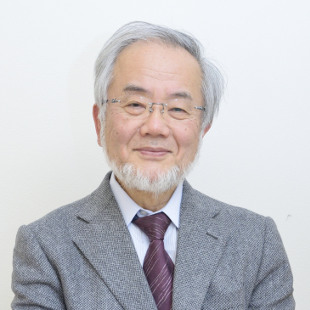 TOKYO INSTITUTE OF TECHNOLOGYYoshinori Ohsumi, an honorary professor at the Tokyo Institute of Technology, has won the 2016 Nobel Prize in Physiology or Medicine. Ohsumi is recognized for his discoveries on the mechanisms of autophagy, the process by which a cell recycles unnecessary components. “His discoveries opened the path to understanding the fundamental importance of autophagy in many physiological processes, such as in the adaptation to starvation or response to infection,” according to the Nobel Foundation’s announcement.
TOKYO INSTITUTE OF TECHNOLOGYYoshinori Ohsumi, an honorary professor at the Tokyo Institute of Technology, has won the 2016 Nobel Prize in Physiology or Medicine. Ohsumi is recognized for his discoveries on the mechanisms of autophagy, the process by which a cell recycles unnecessary components. “His discoveries opened the path to understanding the fundamental importance of autophagy in many physiological processes, such as in the adaptation to starvation or response to infection,” according to the Nobel Foundation’s announcement.
The prize “is a tremendous acknowledgement of this important pathway, which many people haven’t heard of, and it will highlight the importance of the pathway in human diseases [including] cancer and neurodegeneration,” Ohsumi’s friend, Sharon Tooze of the Francis Crick Institute in London, told The Scientist.
First identified as a survival pathway in yeast, dysregulation of autophagy is linked to everything from chemotherapy resistance to amyloid-β aggregation in Alzheimer’s disease.
Maho Hamasaki, an associate professor at Osaka University Graduate School of Medicine, told The Scientist that her former graduate advisor is well deserving of the award. “He just wants to do basic science, not for applications or to get money,” she said. “He’s just a pure scientist.”
Also in recognition of his achievements in autophagy-related ...


















